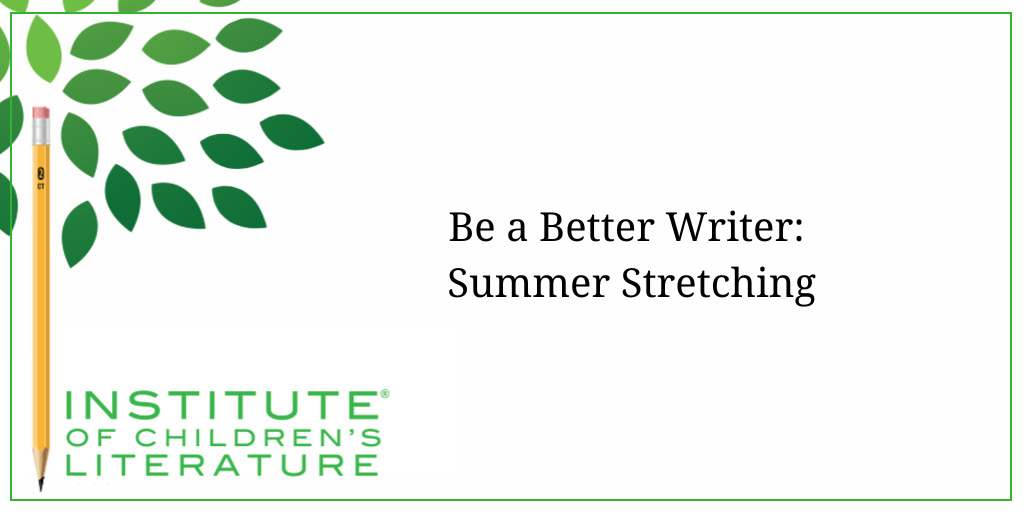
5 Ways Writers Can Prep for 2025 Goal Setting
Before we roll on to the new writing year, let’s harness our optimism for the blank slate before us and prepare for our 2025 Goal Setting just for writers.

To be a better writer never reach the point where you stop learning, growing, and improving. All of the writers you’ve ever looked up to or thought of as masters never stopped learning and improving every time they sat down to write a book. That’s because writing is such a complex thing. Writers turn the world into words. Every sensory experience, every possible activity, every emotion has been tackled by one writer or many, all seeking the best way to use the mechanism of words to make these experiences real for readers. Readers pick up books to experience something new or something old. They turn the pages expecting the words of the writer to change them in some way. And to do this, writers only have words.
Because turning life into words is such a complicated thing to do effectively, all writers are in the process of growth all the time. Writers look for new ways to stretch, new writing courses to take, new things to try, new elements to learn, and new ideas to cultivate. Writers do this because they believe in the value of turning the world into words. They do it because they’ve experienced the magic of words becoming an experience in their own heads. Most writers are readers and they know how magical that process of experiencing something totally new through the words of another person really is.
Because writers use words and language to create life, a fluency with words, grammar, punctuation, and all the working parts of written language will help you be a better writer. Many of us found learning all those English language mechanics more than a little challenging in school. Back then, understanding predicates and modifiers and punctuation sometimes seemed unnecessarily complicated and pointless. Now, though, we are writers. As writers, we need all the tools in our tool kit. We need to understand the mechanics and how the parts come together to create clear, evocative communication.

Still, if you want a much more accessible approach to the basic tools of writing, my favorite is Grammar Girl Presents the Ultimate Writing Guide for Students by Mignon Fogarty. The book is bright, entertaining, and useful. With its lively format and frequent “pop quizzes,” working through the book this summer will help you stretch in one of the most useful areas of writing: the fundamentals of written language itself.
Summer might also be a great time to pick one specific thing you’d like to learn more about and pursue learning about it. For example, I have written several chapter books for the educational market, but I wanted to know about beginning chapter books for trade. It was a new area. I didn’t know much about it. I began by researching online, reading all that I could find on the topic. I read blog posts and essays from writers of early chapter books, from teachers who use them, and from publishers promoting them. I also read a stack of early chapter books from the library. I got a feel for the pacing and for how they differed from the books I’d written for the educational market.
Eventually, I reached a wall. I’d gone as far as I could go on my own. I needed some feedback and someone I could ask specific questions. So, I attended a workshop on early chapter books. I learned a lot through the process. It took time and some money but because I limited the scope of what I wanted to know I was able to fit it into my packed schedule and my miserly resistance to spending. It became a perfect summer stretch project. Think about what might be a fitting summer stretch project for you.
For athletes, stretching isn’t a competition. It isn’t the time when you push yourself hard or dig in and fight. Instead, stretching is all about preparing yourself for success. Because athletes stretch, they can call upon their bodies to do great things. It isn’t the stretch itself where the athlete wins or loses. Because there aren’t many accolades for stretching, it can seem slow or dull, or even pointless. I’ve known folks who jumped right into jogging, refusing to stretch because it was silly: jogging isn’t running, why stretch? Unfortunately, those folks ended up hurt. Stretching lets you put forth the effort needed later by putting in the time to prepare now.
Stretching is also an eternal part of the athletic effort. Athletes don’t reach a point where they never need to stretch. They always do, because they know stretching will help them accomplish more with less harm to themselves. So, summer stretching shouldn’t be odious or miserable. It shouldn’t make you feel like you’re not doing enough or like you’ll never make it. Summer stretching is slow and luxurious. And it’s at your own pace. Decide on your goal, plot your plan to reach it, and begin with a nice long stretch to give you the tools you’ll need when you do hit the ground running.
With over 100 books in publication, Jan Fields writes both chapter books for children and mystery novels for adults. She’s also known for a variety of experiences teaching writing, from one session SCBWI events to lengthier Highlights Foundation workshops to these blog posts for the Institute of Children’s Literature. As a former ICL instructor, Jan enjoys equipping writers for success in whatever way she can.

Before we roll on to the new writing year, let’s harness our optimism for the blank slate before us and prepare for our 2025 Goal Setting just for writers.

Writers can be thin-skinned when it comes to getting feedback on their work. Let’s look at 4 ways to positively deal with constructive criticism!

Rejection is part of the territory when it comes to being a writer. Today we offer reflection for writers to help redirect your efforts after a rejection.
1000 N. West Street #1200, Wilmington, DE 19801
© 2024 Direct Learning Systems, Inc. All rights reserved.
1000 N. West Street #1200, Wilmington, DE 19801
© 2024 Direct Learning Systems, Inc. All rights reserved.
1000 N. West Street #1200, Wilmington, DE 19801
© 2024 Direct Learning Systems, Inc. All rights reserved.
1000 N. West Street #1200, Wilmington, DE 19801
© 2024 Direct Learning Systems, Inc. All rights reserved.

1000 N. West Street #1200, Wilmington, DE 19801
© 2025 Direct Learning Systems, Inc. All rights reserved.

1000 N. West Street #1200, Wilmington, DE 19801
©2025 Direct Learning Systems, Inc. All rights reserved. Privacy Policy.
1 Comment